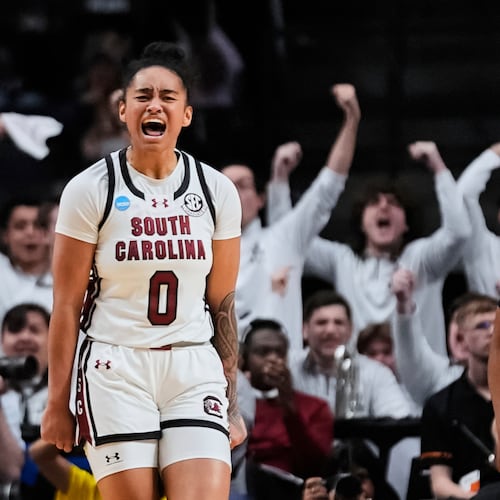Based on the NCAA's commitment to fairness and inclusion, the Association will relocate all seven previously awarded championship events from North Carolina for 2016-17.
The NCAA Board of Governors said that they made this decision on Monday because the cumulative actions taken by the state concerning civil rights protections, according to an NCAA statement in a news release.
"Fairness is about more than the opportunity to participate in college sports, or even compete for championships," Mark Emmert, NCAA president, said. "We believe in providing a safe and respectful environment at our events and are committed to providing the best experience possible for college athletes, fans and everyone taking part in our championships."
These seven championship events will be relocated from North Carolina for 2016-17:
- 2016 Division I Women's Soccer Championship, College Cup (Cary), Dec. 2 and 4.
- 2016 Division III Men's and Women's Soccer Championships (Greensboro), Dec. 2 and 3.
- 2017 Division I Men's Basketball Championship, first/second rounds (Greensboro), March 17 and 19.
- 2017 Division I Women's Golf Championships, regional (Greenville), May 8-10.
- 2017 Division III Men's and Women's Tennis Championships (Cary), May 22-27.
- 2017 Division I Women's Lacrosse Championship (Cary), May 26 and 28.
- 2017 Division II Baseball Championship (Cary), May 27-June 3.
Emmert said the NCAA will determine the new locations for these championships soon.
"The NCAA Constitution clearly states our values of inclusion and gender equity, along with the membership’s expectation that we as the Board of Governors protect those values for all," said Susquehanna University President Jay Lemons, vice chair of the Board of Governors and chair of the ad hoc committee on diversity and inclusion.
Historically, the Association has taken steps to ensure its championship environment is consistent with its values, according to the NCAA release statement.
The NCAA bans championships in states where governments display the Confederate battle flag or authorize sports wagering and at schools that use hostile and abusive Native American imagery.
Based on an April directive from the Board of Governors, which represents all three divisions, cities interested in hosting future NCAA championships completed a questionnaire this summer that required sites to provide information about any local anti-discrimination laws; provisions for refusal of services; and other facility-specific information.
A group of representatives from NCAA schools will continue to evaluate these responses to determine which locations can host future championships.
These decisions, typically announced in early December, will be delayed until next year, Emmert said.
About the Author
Keep Reading
The Latest
Featured


